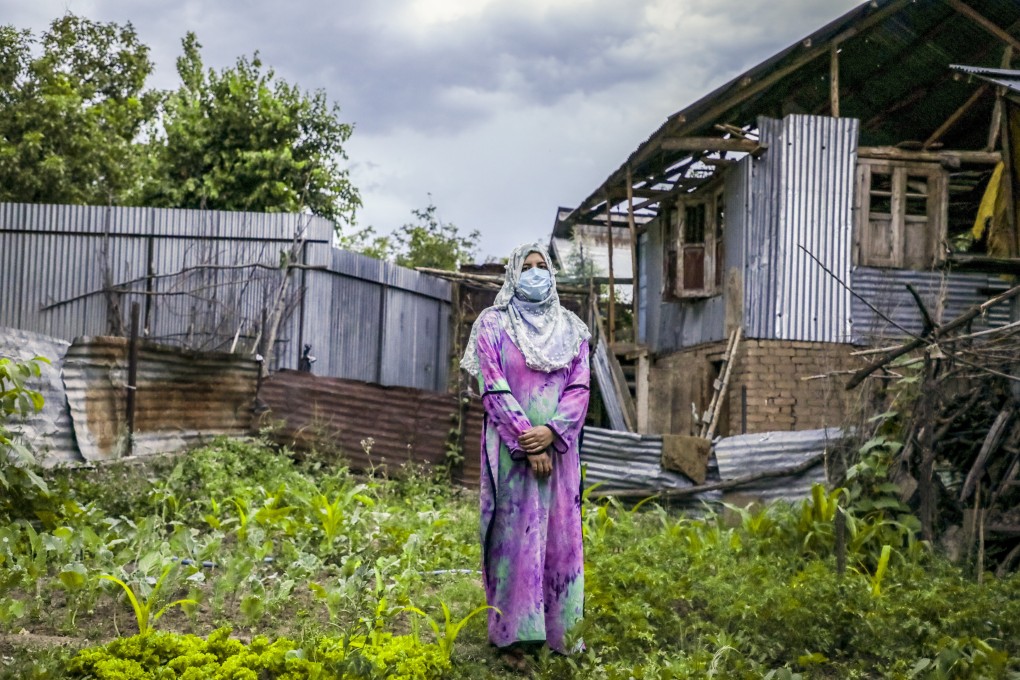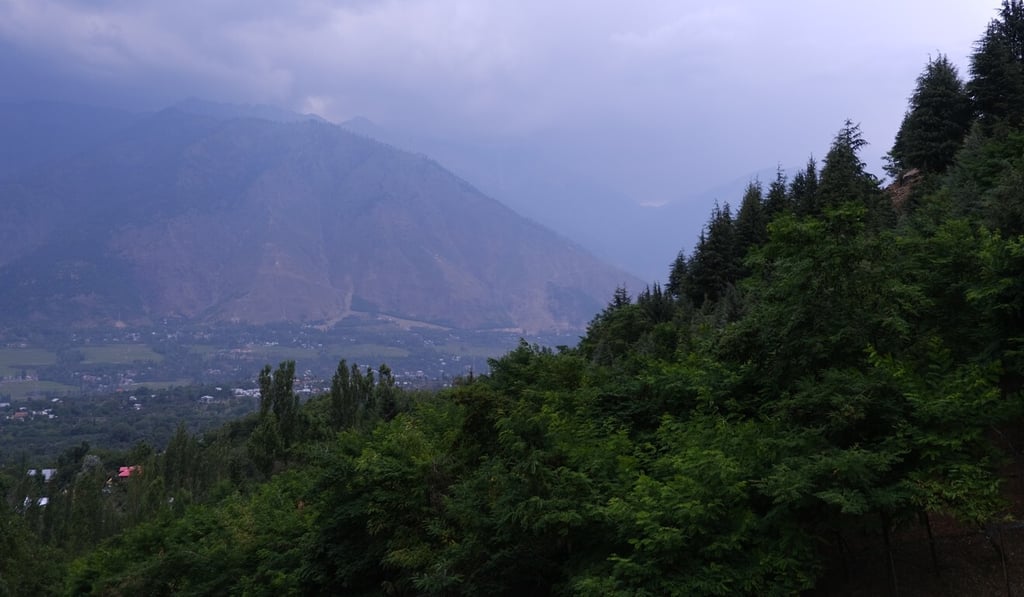The Kashmir village that put an end to domestic violence by banning dowries
- The dowry system was made illegal across India in 1961, yet remains in widespread use, and disagreements over the payments often lead to violence
- In Kashmir, where women have been set on fire in dowry disputes, the traditional village of Baba Wayil has taken a stand

Nestled in the foothills of Gutlibagh, Kashmir, the hamlet of Baba Wayil offers its residents a simple, tranquil and traditional life.
Its one thousand or so villagers pass their time farming walnuts, trading Pashmina shawls and attending Friday prayers at the local mosque. Many have stayed all their lives in the community, which proudly traces its roots back 750 years to when the Sufi saint Syed Baba Abdul Razzaq arrived from Samarkand, Bukhara (modern day Baghdad) to preach and promote Islam. It was he who laid the foundation of Baba Wayil, later dying and being buried in the village that bears his name.
While tradition runs deep in Baba Wayil, the village is known locally for its modern stance against the payment of wedding dowries, an age-old social practice in which the bride’s family is expected to make payment to the groom’s.
The dowry system was made illegal across India in 1961, having been blamed for encouraging the oppression, torture and even murder of women, usually at the hands of the groom’s family in cases where the payment was deemed insufficient.

Yet it remains a widespread problem in a country where arranged marriages are the norm. In Uttar Pradesh on Sunday a man beat his wife to death for failing to meet his dowry demands and in Jammu and Kashmir, it is not unknown for brides in dowry disputes to be set on fire. In 2019, police in the territory recorded eight dowry-related deaths against a wider backdrop of gender-based violence in which 3,069 crimes against women – including rape, molestation and domestic violence – were reported, and 381 kidnappings of women for forcible marriage.